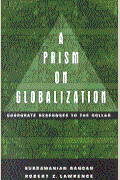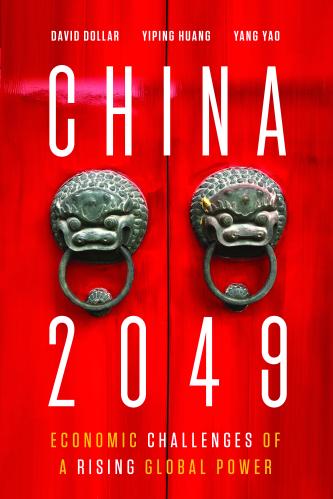Studies in this week’s Hutchins Roundup find corporate borrowing costs rise with the value of the dollar, Black women have died of COVID at disproportionate rates, and more.
Want to receive the Hutchins Roundup as an email? Sign up here to get it in your inbox every Thursday.
When the value of the dollar increases, so do corporate borrowing costs
The ups and downs of the U.S. dollar in global markets materially influence the cost and supply of credit to U.S. corporations, according to Ralf R. Meisenzahl of the Federal Reserve Bank of Chicago and Friederike Niepmann and Tim Schmidt-Eisenlohr of the Federal Reserve Board. They find that a one standard deviation increase in the U.S. trade-weighted dollar index increases the spread on corporate loans by 15 basis points. This relationship is underpinned by the link between changes in the price of the dollar and demand for risky assets, they say. Fluctuations in the value of the dollar also affect the supply of credit that is available to corporations with an increase in the dollar reducing loan amounts. The authors show that changes in the dollar impact not only foreign countries, but also the domestic economy through the corporate credit channel.
COVID mortality rates have been disproportionately high for Black women
Black individuals were the first and hardest hit by COVID-19, dying at a rate 2.2 times higher than their share of the general population by early April of 2020. This Black-white mortality gap was driven by Black women, find Graziella Bertocchi of University of Modena and Reggio Emilia and Arcangelo Dimico of Queen’s University Belfast. Using detailed individual-level data from the Cook County, Illinois, medical examiner, the authors find that, Black women’s overrepresentation in low-paid health care, transportation, and warehousing jobs, as well as longer, more frequent commutes to work via public transport, primarily account for their vulnerability – rather than their age or underlying health conditions. By mapping the home addresses of the deceased onto redlining maps from the 1930s, the authors show that the higher likelihood of death among Black women is concentrated in previously redlined neighborhoods, reflecting “a persistent influence of historical racial segregation.”
Hedge funds, a growing factor in US Treasury market, played destabilizing role in March 2020
Hedge funds’ exposure to the U.S. Treasury market grew from $1.06 trillion at the end of 2017 to $2.02 trillion by mid-2020 as they profited by arbitraging the gap between the price of cash and futures prices of Treasury securities, effectively serving as middlemen between dealers and asset managers. Amid unusually strong selling of Treasuries in March 2020 as money managers sought to raise cash, prices of cash and Treasury futures diverged, provoking the hedge funds to unwind their trades. With data from regulatory filings and transaction-level data, Daniel Barth of the Federal Reserve Board and R. Jay Kahn of the U.S. Treasury Office of Financial Research document the role that hedge funds played in amplifying – not causing, they emphasize – “unparalleled stress in the world’s most important asset market.” Had the Federal Reserve not intervened with huge purchases of Treasuries, they say, the disruption would have been far more severe.
Chart of the week: emerging market and developing economies face Greater GDP scarring than developed countries
Quote of the week:
“[One] consequence of an interconnected world has been a thirty-year race to the bottom on corporate tax rates. Competitiveness is about more than how U.S.-headquartered companies fare against other companies in global merger and acquisition bids. It is about making sure that governments have stable tax systems that raise sufficient revenue to invest in essential public goods and respond to crises, and that all citizens fairly share the burden of financing government,” says Janet Yellen, Secretary of the Treasury.
“President Biden’s proposals… call for bold domestic action, including to raise the U.S. minimum tax rate, and renewed international engagement, recognizing that it is important to work with other countries to end the pressures of tax competition and corporate tax base erosion. We are working with G20 nations to agree to a global minimum corporate tax rate that can stop the race to the bottom. Together we can use a global minimum tax to make sure the global economy thrives based on a more level playing field in the taxation of multinational corporations, and spurs innovation, growth, and prosperity.”
The Brookings Institution is committed to quality, independence, and impact.
We are supported by a diverse array of funders. In line with our values and policies, each Brookings publication represents the sole views of its author(s).











Commentary
Hutchins Roundup: Corporate borrowing costs, COVID mortality, and more
April 8, 2021